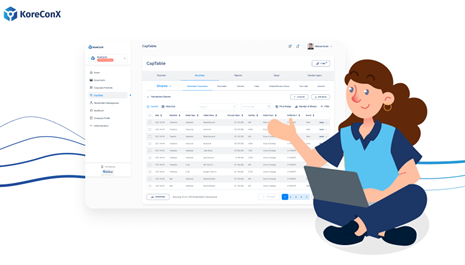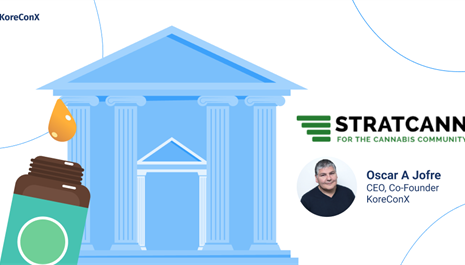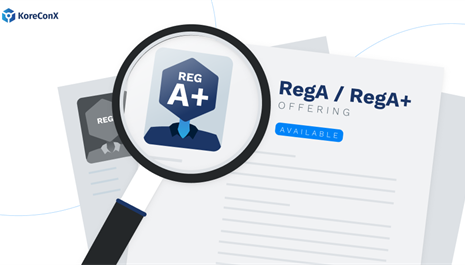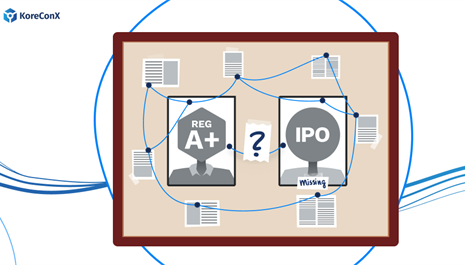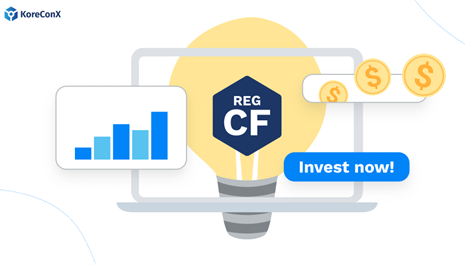
https://www.koreconx.com/how-to-manage-investment-information/
For entrepreneurs, it’s crucial to understand the private capital market well. Companies no longer need to go public to raise capital, enabling entrepreneurs to maintain more control of their companies. With regulations such as RegA+ and RegCF, accredited and non-accredited investors can be part of capital raising. Plus, the available pool of capital is expected to reach up to $30 trillion by 2030, making it a promising resource for companies. At the same time, investment management has become even easier with online services and platforms coming that provide end-to-end management for private companies to streamline the process.
Understanding KYC and KYP
It is vital for investors and issuers alike to know who they are dealing with. This is where KYC (Know Your Customer) and KYP (Know Your Product) come into play. Before making any investment decisions or accepting an investment, you should always know the issuer or investor’s identity.
KYC is an essential comp...more
What’s the Differences Between Regulations A, CF, D, and S?
When it comes to raising capital, there are various ways you can raise money from investors. And while they all have their own specific compliance requirements, they all share one common goal: to protect investors while still providing them with opportunities to invest in private companies. Let’s look at the four most popular types of equity crowdfunding; through Regulation A, CF, D, or S.
Regulation A+ (RegA+)
Offering size per year: Up to $75 million
Number of investors allowed: Unlimited, as long as the issuer meets certain conditions.
Type of investor allowed: Both accredited and non-accredited investors.
SEC qualification required: Reg A+ offerings must be qualified by the SEC and certain state securities regulators and must also file a “Form 1-A”. Audited financials are required for Tier II offerings.
This type of crowdfunding is popular because it allows companies to raise up to $75 million per year in capital and is open to accredited and non-accredited investors. Offering...more
What You Need to Know About Cap Table Management
More than a simple spreadsheet, a cap table (short for capitalization table) records detailed data regarding the equity owned by shareholders. When it comes to raising capital, your cap table will help you make sound decisions regarding your offering. So, what exactly is cap table management?
A clear and well-managed cap table paints a detailed picture of exactly who owns what in the company. Whether a founder is looking to raise additional capital or offer incentives to employees, a correctly-managed cap table will show the exact breakdown of shares, digital securities, options, warrants, loans, SAFE, Debenture, etc. This information enables founders to understand how equity distribution is impacted by business decisions.
Proper cap table management ensures that all transactions are accounted for and that potential investors are easily able to see the equity structure during funding rounds. Founders are also able to better negotiate the terms of a deal when they have the entire pictur...more
What is Tokenization in Real Estate?
The real estate market has seen a substantial uptick in value, with more and more people looking to invest in this asset class. However, the high barrier to entry – requiring significant capital – has traditionally limited participation to only those with deep pockets. But with tokenization and the blockchain technology that supports it, anyone can get in on the action.
What is Tokenization?
In simple terms, tokenization is the process of converting something of value – in this case, real estate – into digital tokens that can be bought and sold on a blockchain platform. This allows for fractional ownership of assets, which opens up investment opportunities to a much wider pool of people. Tokenization is a process that can facilitate investment in fractional portions of real property, thus lowering the barrier to entry for retail investors. By digitizing real estate ownership and using blockchain technology to track transactions, tokenization makes it easier and faster to buy and sell p...more
Oscar Jofre Shares Thoughts of Banking Reform with StratCann
Oscar Jofre, the President and CEO of KoreConX, has long been a proponent of expanding access to capital for cannabis companies in the US and Canada. He recently spoke to StratCann about the current state of banking for these types of companies in both countries. Despite conversations within the US proposing changes to how banks handle working with cannabis companies, Oscar says: “Even with the SAFE Act, the bigger banks aren’t going to put it under their risk profile. They’re going to do the same thing our banks are doing in Canada. They’re not looking at it from the legal point of view anymore. They’re looking at it from the optics point of view. They’re big banks and don’t want to be seen doing business with cannabis.”
His thoughts are that smaller US banks could be a likely partners to both US and Canada-based cannabis companies. Still, a widespread banking reform within the US is unlikely to relieve much of the challenges Canadian cannabis companies currently face. Read the rest o...more
What You Need to Know About Reg A+
If you are an entrepreneur looking to raise funds, you may have heard of Regulation A+, often referred to simply as Reg A+. This alternative to traditional venture capital, private equity, or other funding sources allows companies to sell securities to the public without going through the lengthy and costly process of registering with the SEC. Since it was expanded in 2012 with the JOBS Act, Reg A+ continues to evolve, facilitating increased capital formation for companies within the private capital market.
What is Reg A+?
The goal of Reg A+ is to make it easier and less expensive for small businesses to access capital while still providing investors with the protection of an SEC-qualified offering. The offering is exempt from complete SEC registration, allowing companies to raise up to $75 million in capital, with certain restrictions and requirements. To qualify for this exemption, a company must file an offering statement (Form 1-A) with the SEC that includes all pertinent in...more
Has RegA+ Killed the IPO?
Has RegA+ Killed the IPO?
Regulation A+ gives issuers the ability to raise $75 million in crowdfunding while remaining private. With RegA+ benefiting both companies and investors, does this mean the death of IPOs?
RegA+, part of the JOBS Act, allows companies to raise funds through the general public, not just accredited investors. With more and more IPOs delayed, unprecedented access to private capital is available to all organizations. With RegA+, anyone can invest in private companies, making it increasingly popular with companies seeking capital, primarily since they can raise a significant amount of funding.
The regulatory and monetary hurdles that come with entering an IPO in addition to RegA+ have led to delays in initial public offerings. Since the JOBS Act was passed in 2012, funding opportunities for private companies have improved, especially with the allowance of not-accredited investors opening up a previously untapped pool of prospective investors. Additionally, the secon...more
What You Need to Know About Reg CF
Raising capital is always a challenge, especially in the startup sector, which means that it’s vital to understand all the options available and how they can help you attain your goals. We will discuss Regulation Crowdfunding (Reg CF), which has proved to be an increasingly popular method among early-stage companies looking for funds due to its exemption from SEC registration and access to a vast pool of potential investors, in addition to being cost-effective. This blog post will outline some essential things you need to know before taking advantage of Reg CF as a form of raising capital. Understanding what challenges you may face along the way and what resources are at your disposal will hopefully give you greater insight into whether this capital option is right for your business.
What is Reg CF?
Reg CF refers to equity-based crowdfunding.
This type of financing method raises money through small individual investments from many people.
Startups and early-stage businesses can use Reg C...more
 KoreConX
KoreConX

